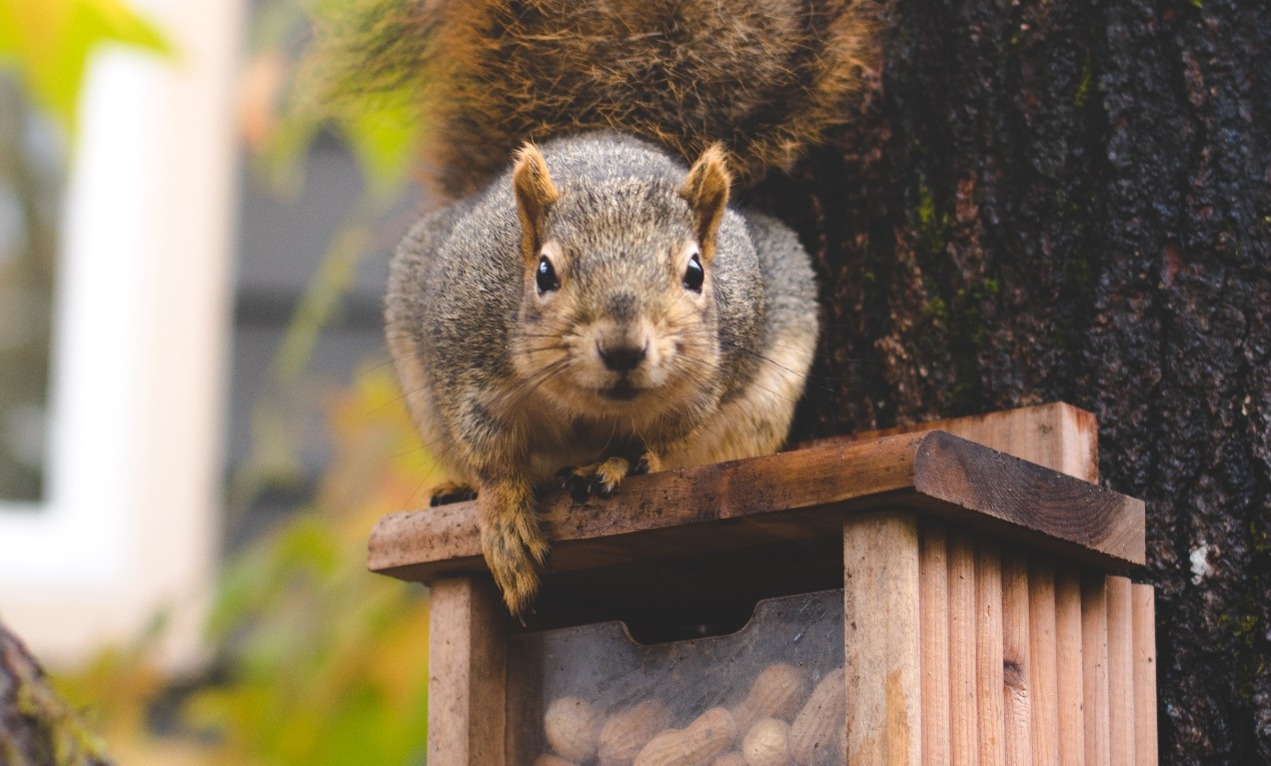Leave the peanuts to the squirrels
Posted on 1st November 2023 at 18:30
Roast your own nuts at home with natural sea salt for the perfect, high-protein snack food

On the blog this week I am focusing on the benefits of natural sea salt in the diet. Adding sea salt to vegetables increases their nutritional value which is great, and we should always do that (see blog post 'Sea salt – for optimal health and aging well'), but what about increasing the nutritional value of snack foods too? Everybody loves salted nuts but they are so expensive these days and the shop-bought ones are usually made with common table salt. So here is a recipe for you to make your own naturally salt nuts at home as a tasty and nutritious snack at a fraction of the cost you would pay in the shops.
Of course, in most cases it is best to eat nuts raw and unsalted. Even better, you can increase their nutritional value by soaking them in water and allowing them to mature to a pre-sprouting stage (but more about this in a future blog). There are times however when snacks are required and it’s always better to make them as healthy as possible.
For those of you who love peanuts and peanut butter you may be interested to know that peanuts aren’t actually nuts at all – they are legumes, a totally different botanic family. Legumes are unique as a foodstuff in that they are naturally high in both starch and protein. This combination is not easily digested hence we get baked beans (another legume) being good for the heart but the more you eat… you know the rest. In countries such as India where legumes are a staple part of the diet they are usually cooked with spices such as asafetida to help make them more digestible. In the UK we think of peanuts as having the same nutritional value as nuts but this isn’t the case. They are more likely to be high in harmful chemical residues and they are especially acidic in the body. On paper, peanuts are a good source of phosphorus, but this is in the form of phytic acid, or phytate which binds with other beneficial dietary minerals, such as iron, zinc, calcium and manganese, inhibiting their absorption. It isn’t the end of the world to eat unsalted peanuts occasionally but eating large quantities of them (especially the salted ones) is not a good from a health perspective.
Almonds, Brazil nuts, chestnuts, hazelnuts and pine nuts are alkaline in the body making them preferable over walnuts, pecans, pistachios and cashews which are, like peanuts, acidic, although not to the same degree. All nuts are high in protein however, which is an important requirement whilst we are growing, and as we age (this particularly applies to women). Whilst the more alkaline-forming nuts should be our first choice, eating a variety of nuts on a regular basis and in fairly small quantities is definitely a good option. Some of the more acid-forming ones such as walnuts are higher in omega 3 essential fatty acids which are an important part of a balanced diet. There are excellent nut butters, other than peanut, available too. Almond is the most nutritious but tahini (made from sesame seed paste, so seed rather than nut) is the highest in calcium and is interchangeable with nut butters either on toast or in most recipes.
It is simple to make salted nuts at home, the trick to get the salt to stick is to stir salted water into them before cooking. The recipe below is for almonds but I have substituted pistachios (shorter cooking time), walnuts and cashews at various times and all of them are quite delicious.
Take a regular sized baking sheet and cover it with baking parchment. Pour in enough nuts to cover the sheet in a single layer then tip the nuts into a heatproof bowl. Dissolve 1½ tsp of natural sea salt into 1½ tbsps of hot water (the salt may not dissolve fully) and pour this over the nuts whilst still hot. Stir to coat then use a slotted spoon to transfer the nuts back onto the parchment. Bake them in a moderate oven (about 180 degrees) for 10 minutes then remove them and give them another stir. Place them back in the oven for 5 more minutes then check them again. The nuts should be lightly browned all over. When you are happy that they are properly done remove them from the oven and tip them back into the heatproof which you have wiped clean. Stir in 2 tbsps of olive oil and sprinkle on a little more sea salt as you go (Fleur de Sel is perfect for this), you won’t need much. Leave the nuts in the bowl to cool and crisp up, or if you are impatient like me then spread them back on the baking sheet so that they cool quicker. Hot nuts can burn your mouth so be warned and they won’t go crisp until they cool. Once completely cold you can store them in an airtight jar and they will keep for ages, if only you can leave them alone.
Tagged as: Celtic sea salt
Share this post:





